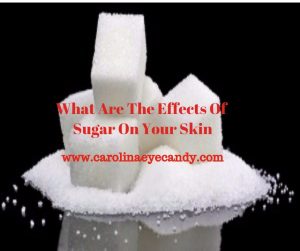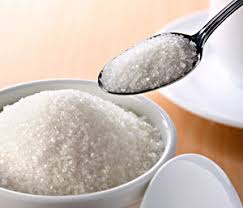Sugar? Too many bad things are said about sugar. Too much of it causes metabolic dysfunction. It makes you gain weight. It causes damage to your liver. It affects your insulin levels. It’s a big factor in increased uric acid levels. Fructose or fruit sugar especially is not good for your health when you consume more than 25 grams or 6 teaspoons which is the recommended daily dosage. Fructose gives you the same health problems that excessive alcohol use or intake can give you. Too much sugar also increases the possibility of diabetes and heart diseases.
Even people who don’t have diabetes must be conscious of their sugar intake. Sugar can be used to sweeten your coffee. The occasional sweets are also good for you. However, a lot of products have sugar in them like sodas, fruit juices and even cereals.
Aside from that, sugar has many effects on your skin including:
- Glycation, or the process of sugar molecule bonding, damages or weakens the biomolecules function. The sugar molecules mixed with proteins and fats form AGE (advanced glycation end) products which cause collagen or protein fibers to malfunction. When this happens, the skin and body become susceptible to skin disorders and diseases.
- AGE damage the proteins in your body and therefore damaging the elastin and collagen.
- Signs of aging become visible when the person is in their mid-30s.
- Skin diseases like wrinkles, sagging, hyperpigmentation, acne and eczema become visible.
- Teeth, cardiovascular system, muscles and proper bone functions are also affected by sugar.
What are the preventive measures you can do:
- WHO (World Health Organization) recommends the decreased intake of food with free sugars (from fruits, honeys, syrups, fruit juices) to 5{7504d3652df74bbcc5142a316402d3e976a3ccd1490953aa99279a35d5c7dcac} of your total energy intake.
- Use skin care products that help slow down the process of glycation and help promote healthy skin. Anti-glycation ingredients include alpha lipoic acid, omega-6 fatty acids, reseveratrol, peptides and taurine.
- Use soy, which is very rich in amino acids.
So think twice when you want to have a second slice of that chocolate cake or want to drink more than 1 can of soda with your meal. Moderation is the key to everything.

